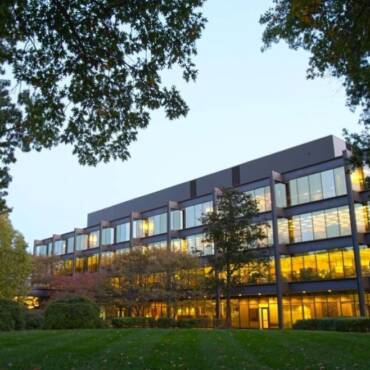Three years ago, private equity zeroed in on HVAC contracting.
With the onset of the pandemic in 2020, a lot of mergers and acquisitions (M&A) activity came to a standstill, as did many industries — but not heating and cooling. Families moved to bigger homes in the suburbs, interest rates were rock-bottom, and money normally spent on vacations or entertainment went instead toward home improvements as people sought to improve comfort during shutdowns and work-from-home. The HVAC industry surged.
And private equity took notice.
“It was really just the perfect storm,” said Jacques Zureikat, vice president at Houlihan Capital. “The uncertainty from COVID made them turn their attention to more recession-resistant, resilient, stable businesses, and HVAC was perfect — regardless of what the economy looks like, people need heat and a/c in their house.”
Private equity firms saw this as an opportunity, and as a result, 2021 and 2022 were both huge years for HVAC business buyups.
“As interest rates remained low, a lot of these new PE firms were really aggressive on acquisitions. So those were the top years,” Zureikat continued, “and then you started to see things pretty meaningfully come down in ’23. Inflation was high. Interest rates were coming up a lot, which was making debt a lot more expensive for some of these buyers, private equity in particular.”
So far in 2024, he said, deal activity (at least, through the first eight or nine months of the year) has been somewhere between ’22 and ’23 levels, although he’s seen a “noticeable uptick in new leads coming across, in the last probably two months or so since August.” With the Fed easing interest rates, he said, he’s expecting “more of that pickup now in the next year or two,” and is even seeing new PE groups start to kick off new platforms.
“So, while I think it’s past its peak in ‘21 and ‘22, we’re still optimistic that things are going to pick up next year,” he concluded.
Here are three things to know about the state of the HVAC M&A market right now and looking into 2025:
1) Private equity’s peak interest in HVAC is now behind us.
Zureikat: It’s almost like the first wave is sort of wrapping up here. The five-year hold period was always the classic amongst private equity, and a lot of them kicked off their roll-up strategies in 2020/2021. One of the broader M&A trends has been a huge come-down in PE-to-PE transactions (exiting their platforms, having their big payday) … 2024 was a big year for private equity to focus more internally, focus on their platform, companies, their internal operations, and try to position it for a good sale potentially next year. So as a lot of them exit their platforms, that’ll sort of enter wave two of the cycle, where we’re already seeing new firms out there who are kicking off new platforms. … I think we’ve got at least another couple of years. I don’t think we’ll get back to where activity was at in ‘21 and ’22, but it’s such a fragmented market, and there are still so many businesses out there that fit the bill for this, that I think there’s at least another couple years here.
Patrick Lange, HVAC business broker, Business Modification Group: Over the last few years, heating and air has been good. Well, now those same private equity companies that were calling me about heating and air for the last three years are now sending me emails (mass emails that they send every broker they can find) that say, “We love roofing, roofing is a great industry,” and three years from now, it’ll be pest control, and then it’ll be, you know, hospitals. By design, private equity is designed to raise capital, invest in that capital, and then within three to five years, move on to something else. We’re in years three to four. … It’ll slow down. It has slowed down already. There’ll still be some people who are going to be successful in it and stay in it. But for the most part, they’ve got to give people a return on their money.
2) Many of the mid-size HVAC companies have already been bought up, but for smaller, independent HVAC businesses (think under $5 million), sales remain brisk.
Lange: With all this consolidation, all the $10, $20, $30, $40 million companies were already gobbled up, and there’s a lot of $1 and $2 million companies that weren’t. I do a lot of smaller deals — $1.5 million to $7 or $8 million — and that end of the market, to me, has remained resilient. I did 23 deals in ’23, and I’ll probably do 22 or 24 deals in ’24, depending on what closes before the end of the year. Valuations, to me, have remained consistent, and buyer demand really has increased, but my segment of the market didn’t get really crazy in valuations like bigger companies did. There was a time where, if you got a company doing $10 million in sales, I’d call 10 buyers and there’d be a bidding war. Now, I see a little more scrutiny at the upper end of the market. But the … I’m going to call them Main Street-size companies — you know, the average heating and air company, couple million dollars in sales — there’s still a lot of buyer demand for good companies.
I think part of it is that, with the press, buying and selling has gotten outside of the industry; I sell a lot of companies to a lot of people with no industry experience, and I think that’s part of it. I think there’s a lot of people who participated in these bigger deals at the upper end of the market and aren’t in the position to do it, but they can buy a smaller company. I see family members whose mom and dad maybe sold their company to somebody else, and now they’re going to get back in the business as kids (because they) didn’t like working for somebody else. These buyers can’t afford to compete with private equity groups to buy a $20 million company, but they can buy a $2 million one with SBA financing.
John Cerasuolo, CEO, Leap Partners: It’s been hibernation, a little bit, this year, for the bigger deals. And that’s a combination of factors: interest rates, market conditions … the market just has been flat to down over the last two years, broadly, and so that’s a hard time to go out and try to sell a business. You want to sell a business leaning into some strength, and there have not been a lot of companies that have grown like they did in ‘20 and ‘21 and ’22, when things were kind of booming in the COVID era.
3) The market to sell an HVAC business will remain strong in 2025 — but expect more scrutiny from buyers now than there was in 2021.
Cerasuolo: For good-quality companies that are well-led and are viewed as kind of a premium type of a company, I think the market is going to be great — and quite honestly, it always would be good for those kinds of companies. What happens when things get really frothy is the companies that aren’t as good, their value ends up increasing, because everybody is actively trying to find something. Three years ago, you could buy almost anything and put a few of them together and flip it two years later for more money. That’s gone away. My sense for next year is, for the smaller companies in the industry, good companies are going to continue to get good valuations, but I think there’s going to be more skepticism — people are going to look a lot harder to ensure the companies they’re buying really are premium assets, because it’s very challenging and expensive to turn around companies that aren’t performing well or that aren’t well led, and in this market, there’s just not that margin for error.
Whether you require installation, repair, or maintenance, our technicians will assist you with top-quality service at any time of the day or night. Take comfort in knowing your indoor air quality is the best it can be with MOE heating & cooling services Ontario's solution for heating, air conditioning, and ventilation that’s cooler than the rest.
Contact us to schedule a visit. Our qualified team of technicians, are always ready to help you and guide you for heating and cooling issues. Weather you want to replace an old furnace or install a brand new air conditioner, we are here to help you. Our main office is at Kitchener but we can service most of Ontario's cities
Source link


